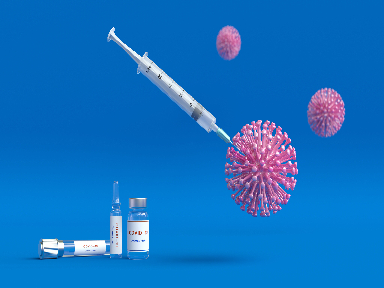expresspharmaJuly 13, 2021
Tag: COVID-19 Vaccine , SARS-CoV-2 , PIV5
A new single-dose, intranasal COVID-19 vaccine fully protects mice against lethal infection, and also blocks transmission of the SARS-CoV-2 virus in ferrets, a study has shown.
The new vaccine, described in the journal Science Advances, is administered through a nasal spray similar to those commonly used to vaccinate against influenza.
This new method is unlike the currently approved COVID-19 vaccines that require an injection.
“The currently available vaccines against COVID-19 are very successful, but the majority of the world’s population is still unvaccinated and there is a critical need for more vaccines that are easy to use and effective at stopping disease and transmission,” said Paul McCray, a professor of at University of Georgia, US.
“If this new COVID-19 vaccine proves effective in people, it may help block SARS-CoV-2 transmission and help control the COVID-19 pandemic,” McCray, co-leader of the study, said.
The researchers noted that the vaccine only requires a single dose and it may be stored at normal refrigerator temperatures for up to at least three months.
Because it is given intranasally, the vaccine may also be easier to administer, especially for those who have a fear of needles, they said.

“Our preclinical data show that this vaccine not only protects against infection, but also significantly reduces the chances of transmission,” said Biao He, a professor at the University of Georgia, and co-leader of the study.
The experimental vaccine uses a harmless parainfluenza virus 5 (PIV5) to deliver the SARS-CoV-2 spike protein into cells where it prompts an immune response that protects against COVID-19 infection.
PIV5 is related to common cold viruses and easily infects different mammals, including humans, without causing significant disease.
Spike protein helps the virus to enter and infect human cells, and vaccines are directed against it.
The team has previously shown that this vaccine platform can completely protect experimental animals from another dangerous coronavirus disease called Middle Eastern Respiratory Syndrome (MERS).
The inhaled PIV5 vaccine targets mucosal cells that line the nasal passages and airways, which are the main entry point for most SARS-CoV-2 infections and the site of early virus reproduction.
Virus produced in these cells can invade deeper into the lungs and other organs in the body, which can lead to more severe disease, according to the researchers.
Virus made in these cells can be easily shed through exhalation allowing transmission from one infected person to others, they said.
The study showed that the vaccine produced a localised immune response, involving antibodies and cellular immunity that completely protected mice from fatal doses of SARS-CoV-2.
The vaccine also prevented infection and disease in ferrets and appeared to block transmission of COVID-19 from infected ferrets to their unprotected and uninfected cage-mates, the researchers added.


Contact Us
Tel: (+86) 400 610 1188
WhatsApp/Telegram/Wechat: +86 13621645194
Follow Us:




 Pharma Sources Insight January 2025
Pharma Sources Insight January 2025


